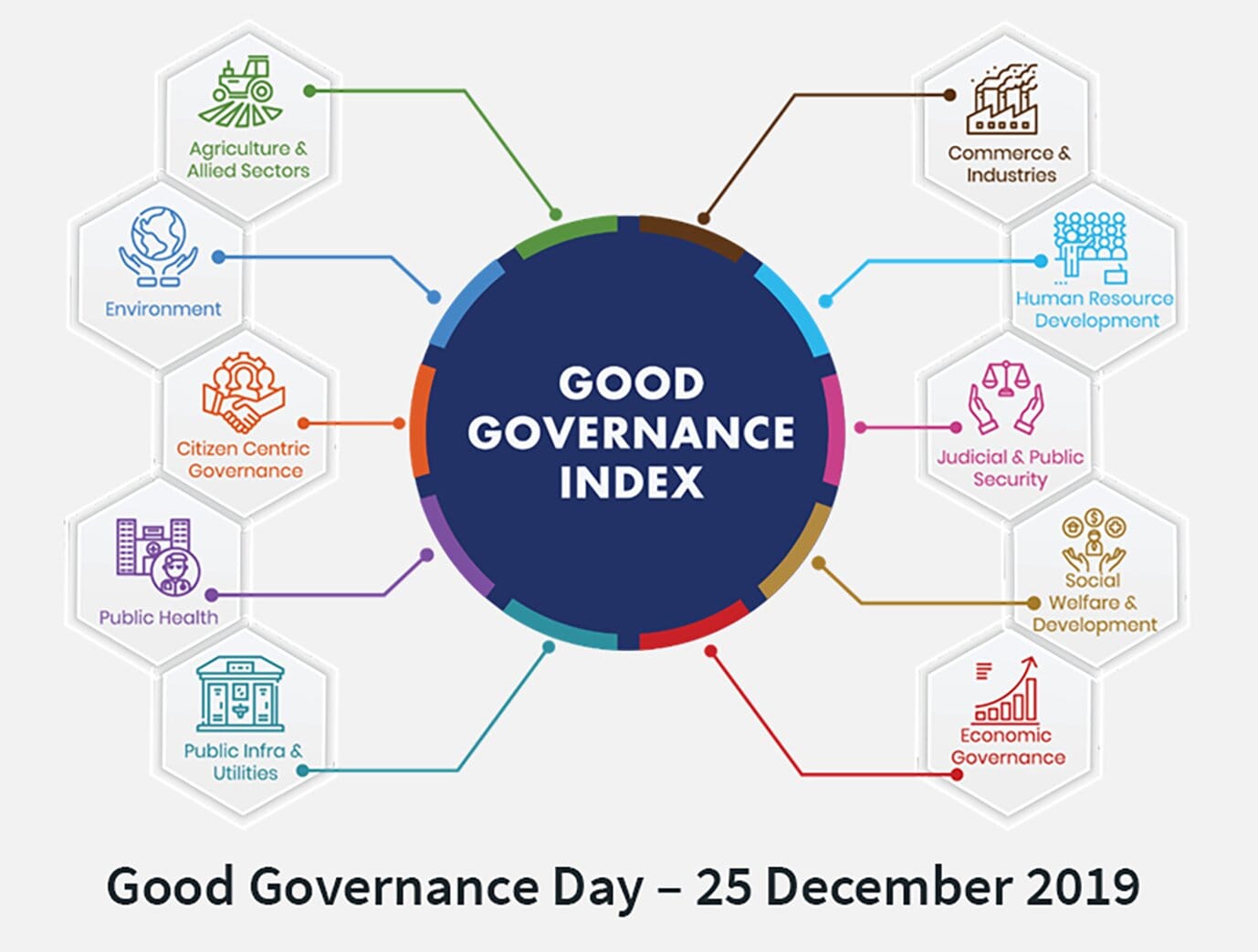Governance
Year End Review 2019: Ministry of Personnel, Public Grievances and Pensions
- 04 May 2020
- 6 min read
Important Schemes and Policies
- ‘Good Governance Index’ (GGI) was launched by the Ministry of Personnel, Public Grievances & Pensions on Good Governance Day i.e. 25th December, 2019.
- It is a uniform tool across States to assess the Status of Governance and impact of various interventions taken up by the State Government and UTs.
- The objectives of GGI are to provide quantifiable data to compare the state of governance in all states and UTs, enable states and UTs to formulate and implement suitable strategies for improving governance and shift to result-oriented approaches and administration.
The Chairperson, Lokpal, Sh. Justice P. C. Ghose and its eight members were administered the Oath of Office.
- The Lokpal and Lokayukta Act, 2013 provided for the establishment of Lokpal for the Union and Lokayukta for States.
- These institutions are statutory bodies without any constitutional status.
- They perform the function of an "ombudsman” and inquire into allegations of corruption against certain public functionaries and for related matters.
- In India, the concept of constitutional ombudsman was first proposed by the then law minister Ashok Kumar Sen in parliament in the early 1960s.
- The term Lokpal and Lokayukta were coined by Dr L. M. Singhvi.
- The Bill was passed in 2013 in both the Houses of Parliament and came into force on 16 January 2014.
- Parliament passed the Right To Information Amendment Bill, 2019.
- In this amendment, it is proposed to amend the Right to Information Act, 2005 so as to provide that the term of office of, and the salaries, allowances and other terms and conditions of service of, the Chief Information Commissioner and Information Commissioners and the State Chief Information Commissioner and the State Information Commissioners, shall be such as may be prescribed by the Central Government.
Right To Information
- Right To Information (RTI) marked its 14th anniversary on 12th October 2019.
- The right to information gained power when Universal Declaration of Human Rights was adopted in 1948 providing everyone the right to seek, receive, information and ideas through any media and regardless of frontiers.
- The International Covenant on Civil and Political rights 1966 states that everyone shall have the right to freedom of expression, the freedom to seek and impart information and ideas of all kinds.
- The RTI Act, 2005 did not create a new bureaucracy for implementing the law. Instead, it tasked and mandated officials in every office to change their attitude and duty from one of secrecy to one of sharing and openness.
- Right to information has been seen as the key to strengthening participatory democracy and ushering in people-centred governance.
Objectives of the Act
- To empower the citizens
- To promote transparency and accountability
- To contain corruption and
- To enhance people’s participation in democratic process.
Important Facts
- Shillong Declaration: Department of Administrative Reforms and Public Grievances (DARPG) in association with Ministry of Electronics & Information Technology (MeitY), Government of India and the State Government of Meghalaya organized the 22nd National Conference on e-Governance (NCeG) 2019 on 8-9th August, 2019 at Shillong, Meghalaya.
- ‘Shillong Declaration’ outlines the roadmap on e-Governance of the Nation.
- Nagpur Resolution: Adopted in December 2019, to empower the citizens by policy interventions for better service delivery through timely updation of citizens charters, implementation of enactments and benchmarking standards for continuous improvement, among others.
- Centralised Public Grievance Redress and Monitoring System (CPGRAMS): It is an online web-enabled system developed by National Informatics Centre (Ministry of Electronics & IT [MeitY]), in association with Directorate of Public Grievances (DPG) and Department of Administrative Reforms and Public Grievances (DARPG).
- The underlying idea was to receive, redress and monitor the grievances of the public.
Central Information Commission (CIC)
- CIC was established in 2005 by the Central Government under the provisions of Right to Information (RTI) Act, 2005.
- The Chief Information Commissioner heads the Central Information Commission.
- It hears appeals from information-seekers who have not been satisfied by the public authority and also addresses major issues concerning the RTI Act.
- CIC submits an annual report to the Union government on the implementation of the provisions of RTI Act.
- The Right to Information Act of 2005 provides for the creation of a State Information Commission at the state level.
- It entertains complaints and appeals pertaining to offices, financial institutions, public sector undertakings, etc.under the concerned state government.
- The Commission consists of a State Chief Information Commissioner and not more than ten State Information Commissioners appointed by the Governor.







